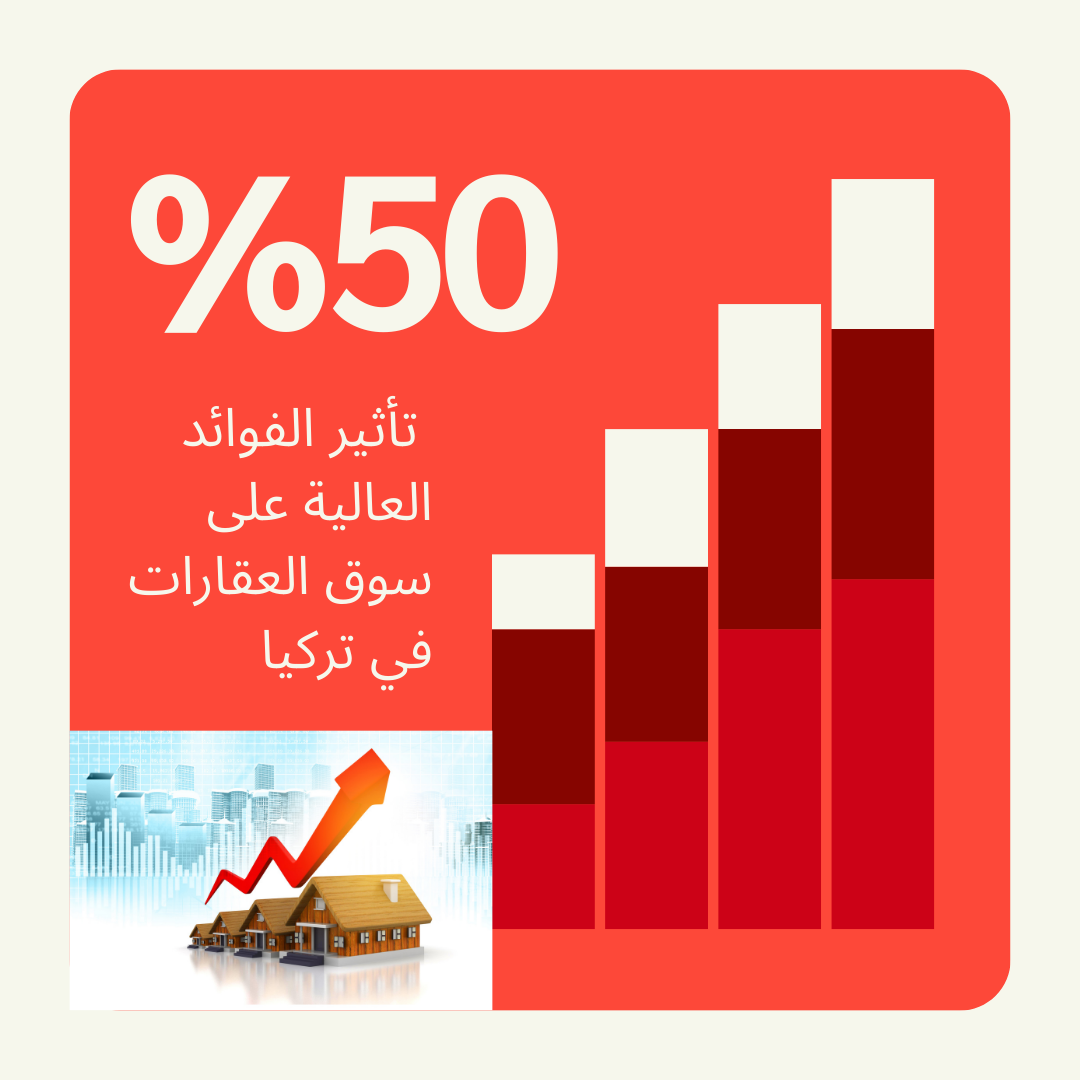
The Impact of High Interest Rates on the Real Estate Market in Turkey
Turkey’s **real estate market** is one of the fastest-growing and most attractive for investment in the region. However, changes in **interest rates** are a key factor that directly affects the performance of this market. The recent **increase in interest rates** in Turkey has raised questions about how this will impact the real estate sector, both for local and foreign investors. In this article, we will discuss the effects of high interest rates on Turkey’s real estate market and how these changes can negatively or positively influence the sector.
1. **Impact of High Interest Rates on Purchasing Power**
One of the most significant effects of **high interest rates** is their direct impact on **purchasing power** for investors and buyers. When interest rates rise, the cost of mortgage loans increases, making **real estate financing** less attractive and more difficult for buyers. This leads to a decrease in demand for properties, especially among individuals who rely on loans to finance their purchases.
In this context, **residential property sales** may decline due to a reduced ability to secure affordable loans. As a result, fewer people can afford to buy a home or apartment, negatively affecting market demand.
2. **Impact of High Interest Rates on Local Investors**
For local investors, **high interest rates** make financing real estate projects more expensive. This may cause many investors to hesitate in launching new projects or expanding their investments in the real estate sector. Additionally, investors may turn to other investment alternatives, such as **bank deposits**, which could become more appealing due to the higher returns from increased interest rates.
3. **Impact of High Interest Rates on Foreign Investors**
For foreign investors, the impact of **rising interest rates** is less noticeable but still present. Investors who bring in foreign currencies might find Turkey a lucrative investment destination, especially due to the favorable **exchange rate** of the Turkish lira against foreign currencies. However, **real estate financing** may become less attractive if they rely on local loans.
Although some foreign investors could be affected by higher interest rates, the impact is generally lighter compared to local investors. Many foreign investors finance their real estate purchases with cash or loans from their home countries, which may offer lower interest rates.
4. **Slowdown in the Real Estate Market**
**High interest rates** typically lead to a **slowdown in the real estate market**. As borrowing costs increase, fewer buyers enter the market, making it less active. As a result, **property developers** may face challenges in selling their units, potentially leading to an oversupply of unsold properties or the postponement of new projects.
5. **Buying Opportunities for Cash Investors**
On the positive side, **higher interest rates** can create good opportunities for investors who have **cash liquidity**. They can take advantage of the reduced demand to purchase properties at lower prices or with attractive discounts. Additionally, some property developers may offer special incentives to attract cash buyers in response to the decline in loan-dependent purchasers.
Conclusion
Overall, **higher interest rates** have a variety of effects on the **real estate market in Turkey**. They negatively impact purchasing power and slow down the market, especially among local buyers who rely on mortgages. However, this slowdown can present good buying opportunities for cash investors, particularly during periods of market stagnation. In the long run, the **Turkish real estate market** will remain strong and attractive, though it may experience fluctuations due to **monetary policies** and changes in **interest rates**.
